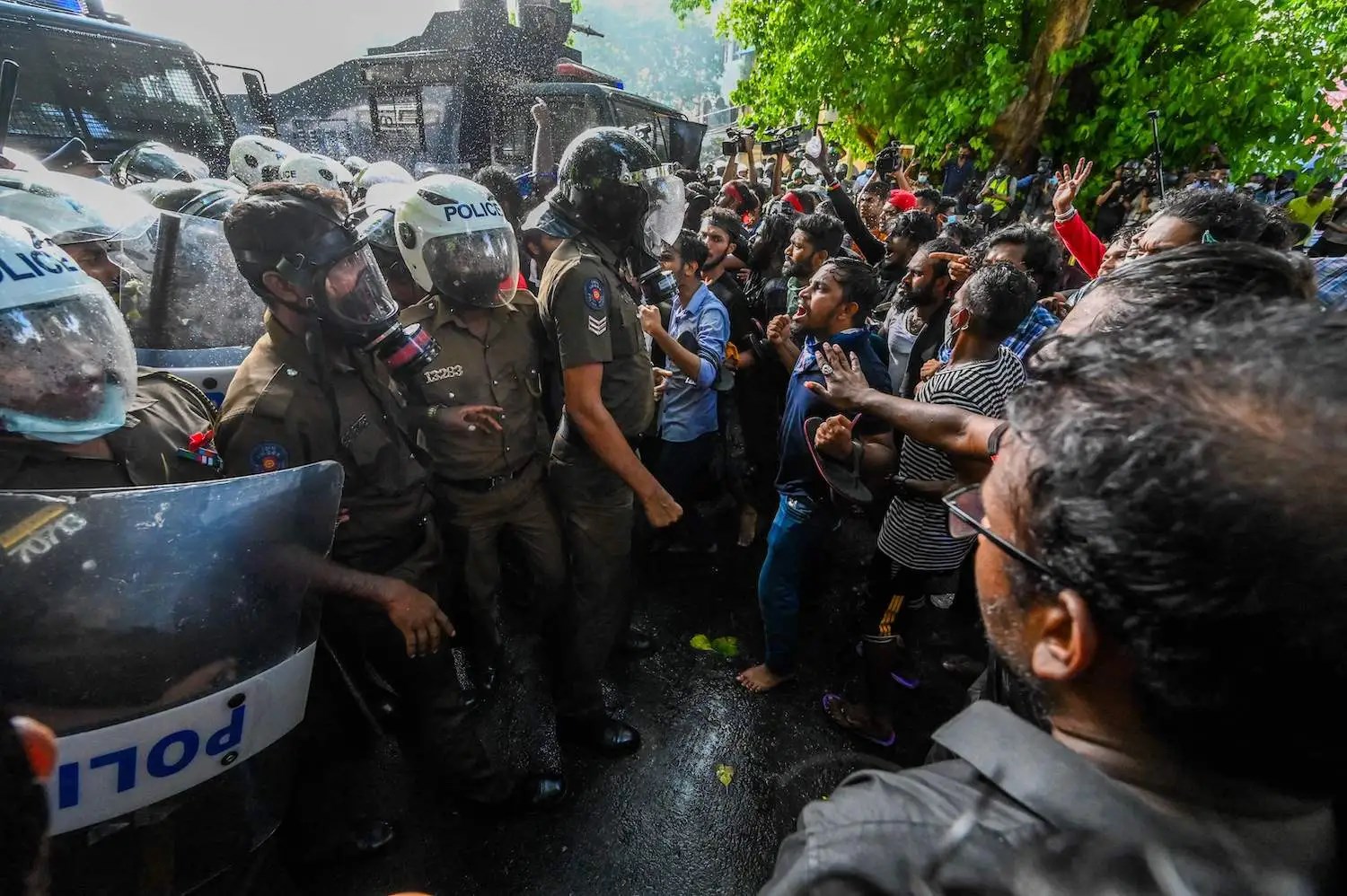Sri Lankan protesters force President to flee palace
Sri Lankan President Gotabaya Rajapaksa flees his official residence after protesters surrounding it stormed the compound.
-

University students speak with police during a demonstration demanding the resignation of Sri Lankan President in Colombo, Sri Lanka, on May 19, 2022 (Getty)
Sri Lankan President Gotabaya Rajapaksa fled his official residence in the capital, Colombo, on Saturday, a top defense source told AFP before protesters, who had gathered around the presidential palace, stormed the compound.
"The president was escorted to safety," the source said, revealing that soldiers fired in the air to prevent the crowds from taking over the palace.
Local private broadcaster Sirasa TV showed crowds entering the residence that used to be highly guarded by security and military personnel.
In response, Sri Lanka's Prime Minister Ranil Wickremesinghe summoned an urgent cabinet meeting to discuss a "swift resolution" to a potential power vacuum after President Gotabaya Rajapaksa fled his official residence Saturday.
Wickremesinghe, who is next in line of succession if Rajapaksa resigns, invited political party leaders to join the meeting and also asked for parliament to be convened urgently to discuss the crisis, his office said in a statement.
The storming comes as Sri Lanka suffers through months-long food and fuel crises, power blackouts that would go on for the majority of the day, and soaring inflation rates as the country ran out of foreign currency to import key goods.
Read next: Bankrupt Sri Lanka opens oil market to foreign firms
Rationing has been in place, but in late June, the government banned fuel sales for two weeks in order to conserve Sri Lanka's limited emergency stockpiles.
Ministers said the crisis made it an appropriate time to allow firms from oil-producing countries to enter the market "to enable them to import and sell fuel using their funds," according to a cabinet statement issued on Tuesday.
Sri Lanka went into default on its $51 billion foreign debt in April and is currently negotiating a bailout with the International Monetary Fund.
Sri Lankan Prime Minister Ranil Wickremesinghe told Parliament that the country's economy has "collapsed", emphasizing the country's precarious predicament as it seeks assistance from foreign lenders.
Wickremesinghe said the South Asian country is in a "far more serious situation" than only food shortages, and he warned of a "possible fall to rock bottom."
The country's 22 million people have been suffering from acute shortages and long lines for scarce supplies, while President Gotabaya Rajapaksa has resisted calls to resign over mismanagement for months, which finally prompted protesters to drive him out of his palace.
Police had withdrawn a curfew order issued on Friday after opposition parties, rights activists, and the bar association threatened to sue the police chief.
Later, thousands of protesters ignored the curfews and forced the railway authorities to operate trains and take them to Colombo so they could demonstrate against the government, officials said.

 3 Min Read
3 Min Read










